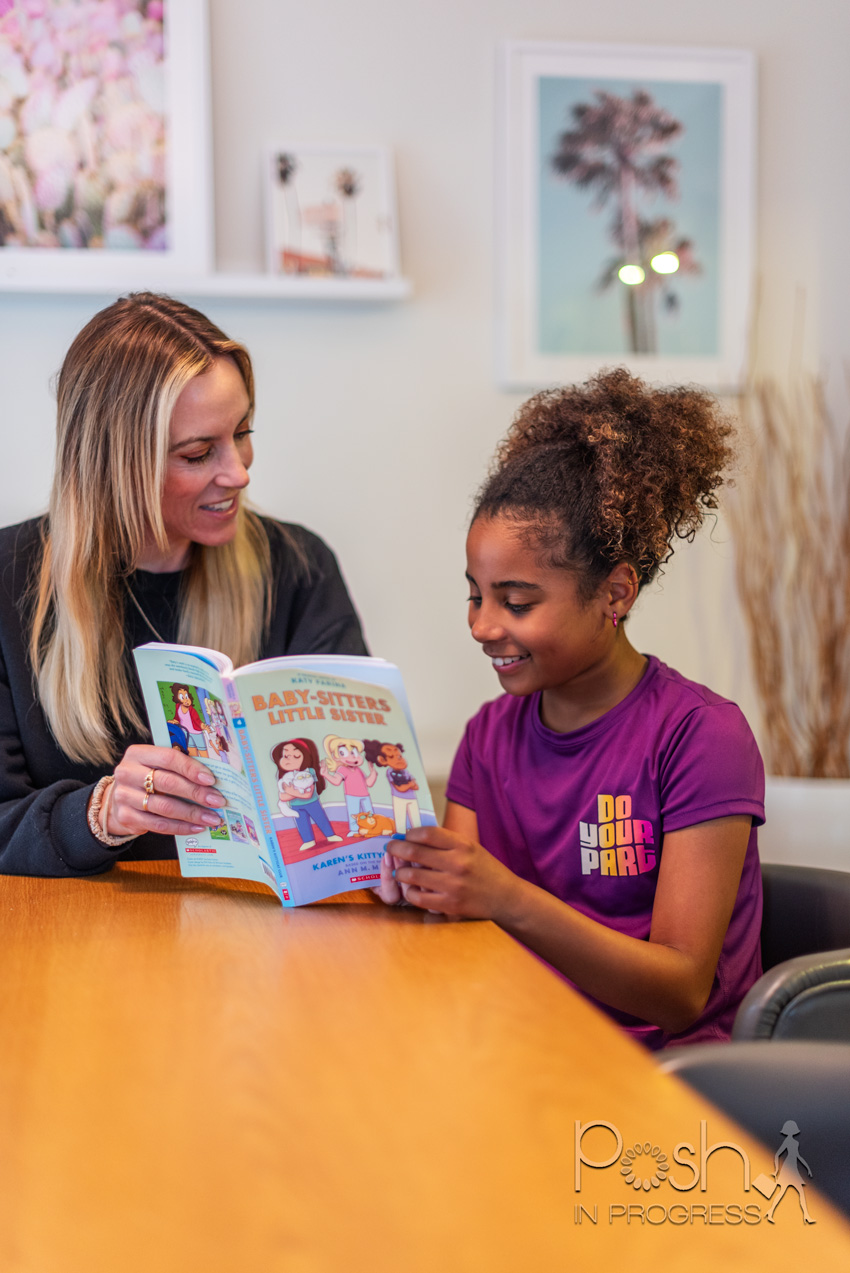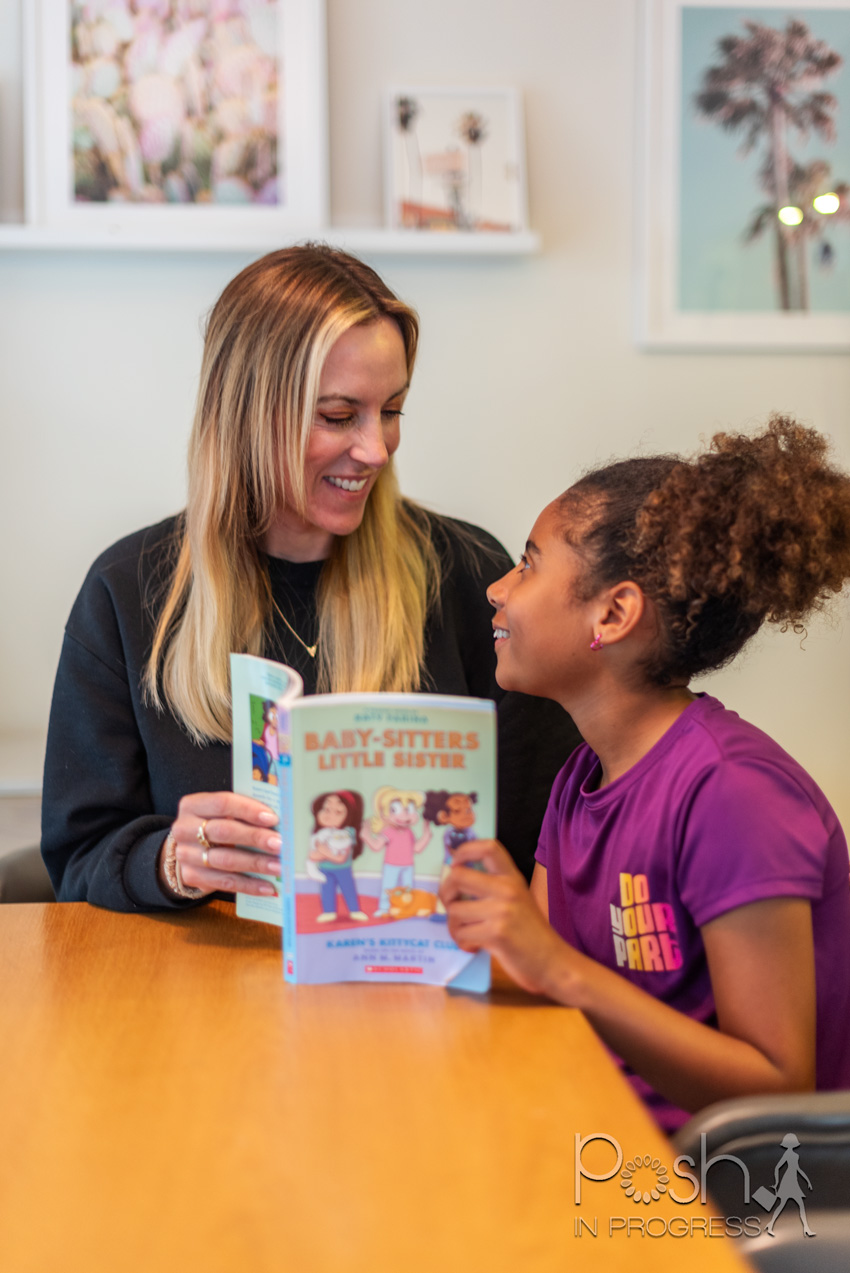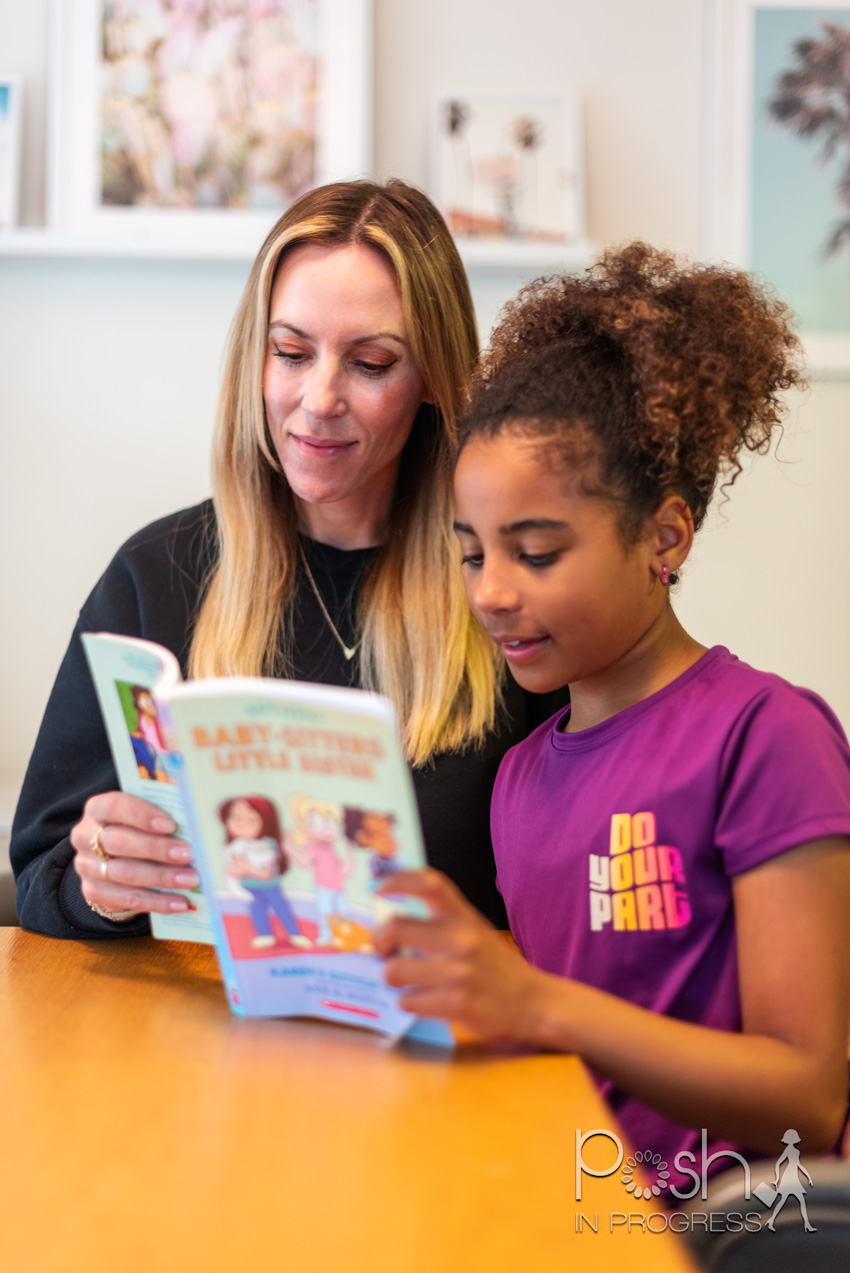Empowering A Struggling Reader: Tips and Strategies for Elementary School Success

Reading is an essential skill that opens doors to knowledge, imagination, and success in all areas of life. However, for some elementary school students, becoming proficient readers can be challenging. Whether due to learning differences, lack of exposure, or other factors, a struggling reader may need extra support and encouragement to unlock the world of literacy.
Would you believe I was a struggling reader? For someone who started off as a slow reader in elementary school, to majoring in English Literature in college and making my way to earning a Ph.D., I want to assure parents not to worry if your child is currently struggling. There is a lot you can do to help them catch up and you are not alone. Every kid is unique. Rocco took immediately to reading and loves to read in his free time. Gigi, on the other hand, has struggled a bit with her reading. Especially because she was home during the pandemic, which was one of her first years to learn reading. Despite a slower start, she’s improved so much over the last few years, so I thought it would be helpful to share tips for parents who may have kids who are struggling with reading.
Understanding a Struggling Reader
Before diving into specific strategies, it’s crucial to understand what struggling readers may be experiencing. Struggling readers may exhibit difficulties with decoding words, comprehension, fluency, or motivation. They may feel frustrated, embarrassed, or anxious about their reading abilities, which can further hinder their progress. As parents, it’s essential to approach the situation with empathy, patience, and a willingness to support your child’s unique learning journey.
How Can Parents Help Facilitate a Child’s Learning
- Create a Positive Environment:
Foster a love for reading by making it an enjoyable and positive experience. Set aside dedicated time for reading together as a family, and choose books that align with your child’s interests and reading level. Celebrate small victories and progress, no matter how minor. Encourage a growth mindset by emphasizing effort and improvement rather than perfection.
2. Model Reading Behavior:
Children often mimic the behaviors of adults around them. Let your child see you reading for pleasure, whether it’s a book, magazine, or newspaper. Show enthusiasm for reading and discuss what you’re reading with your child. Make reading a part of daily routines, such as bedtime stories or reading aloud during meals. These shared reading experiences can strengthen the parent-child bond while promoting literacy skills.
3. Provide Supportive Resources:
Invest in high-quality, age-appropriate books that cater to your child’s interests and reading level. Look for books with engaging illustrations, simple vocabulary, and supportive features like phonics or sight words. Explore audiobooks as an alternative way for your child to access stories and build comprehension skills. Listening to audiobooks can also improve fluency and vocabulary development.
4. Implement Reading Strategies:
Break down reading tasks into manageable chunks and provide scaffolding support as needed. Encourage your child to use strategies like chunking words, using context clues, and making predictions to improve comprehension. Practice reading fluency by modeling fluent reading and engaging in repeated readings of familiar texts. Use reading games and activities to make practice fun and interactive.
5. Foster a Growth Mindset:
Help your child develop a positive attitude towards challenges and mistakes. Encourage them to see setbacks as opportunities for growth and learning. Praise effort, perseverance, and resilience, rather than focusing solely on outcomes. Remind your child that everyone learns at their own pace and that progress is more important than perfection.
6. Seek Additional Support:
If your child continues to struggle with reading despite your best efforts, don’t hesitate to seek help from teachers, school counselors, or reading specialists. They can provide personalized interventions and resources to address your child’s specific needs.
Explore reading programs and interventions designed for struggling readers, both within the school setting and through community resources. These programs often incorporate evidence-based strategies and individualized support to improve literacy skills.
Additional Resources for Parents
Here are some additional resources and websites that parents can explore to support their children who are struggling readers:
- Reading Rockets: Reading Rockets is a national multimedia project that offers a wealth of research-based reading strategies, activities, and resources for parents, educators, and caregivers. Their website includes articles, videos, webcasts, and downloadable materials covering various aspects of reading instruction and support for struggling readers.
- Understood: Understood is a comprehensive online resource for parents of children with learning and attention issues. Their website provides expert advice, personalized tools, and practical tips to help parents understand their child’s challenges and advocate for their needs. Understood offers resources specifically tailored to supporting struggling readers, including articles, videos, and interactive tools.
- Bookshare: Bookshare is the world’s largest accessible online library for individuals with print disabilities, including struggling readers. Parents can sign up for a membership on behalf of their child and access a vast collection of ebooks in accessible formats, such as audio, braille, and large print. Bookshare offers books for all ages and reading levels, making it a valuable resource for children with reading difficulties.
- Learning Ally: Learning Ally is another nonprofit organization dedicated to providing audiobooks and other accessible educational materials for individuals with learning disabilities or visual impairments. Parents can subscribe to Learning Ally’s services to access a vast library of audiobooks, including textbooks, literature, and popular children’s books, to support their struggling readers.
- Khan Academy: While primarily known for its comprehensive collection of educational videos and interactive exercises in various subjects, Khan Academy also offers resources to support literacy and reading skills development. Parents can explore Khan Academy’s reading and language arts materials, which include phonics exercises, reading comprehension practice, and grammar lessons, to supplement their child’s learning.
- International Dyslexia Association: The International Dyslexia Association (IDA) is a trusted source of information and support for individuals with dyslexia and their families. Their website offers articles, webinars, and resources specifically focused on understanding and addressing dyslexia, including evidence-based reading interventions and strategies for parents and educators.
- Scholastic Parents: Scholastic Parents is a valuable resource for parents seeking tips, advice, and activities to support their child’s literacy development. The website features articles, book lists, printable worksheets, and interactive games designed to engage children in reading and language arts activities at home.
- Your Local Library: Don’t overlook the resources available at your local public library. Many libraries offer literacy programs, reading clubs, and storytelling events specifically geared toward young readers. Librarians can also recommend age-appropriate books and guide supporting struggling readers.
By exploring these resources and websites, parents can access a wealth of information, tools, and support to help their children build essential reading skills and overcome challenges in literacy development.
Final Thoughts
Helping a struggling reader navigate the world of literacy requires patience, persistence, and a collaborative approach between parents, educators, and support professionals. By creating a positive and supportive environment, modeling reading behavior, implementing effective strategies, fostering a growth mindset, and seeking additional support when needed, parents can empower their struggling readers to overcome obstacles and unlock their full potential. Remember that every child learns differently. Progress may take time. With love, encouragement, and the right support, every child can become a confident and proficient reader.
If you’re looking for other parenting stories, click here.



